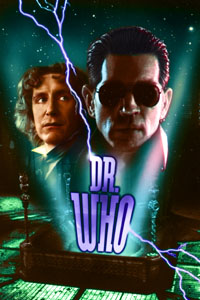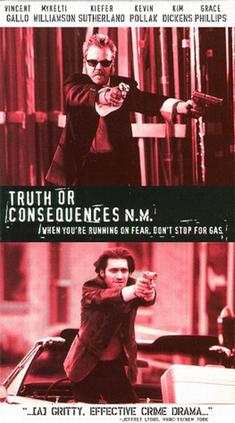| Capaldi and Coleman's faces after reading the script for "Sleep No More" |
"Are you kidding me with this? I ask you for something really scary for episode nine, and this is what you bring me? Eye booger monsters? I defended you after the, quite frankly, ridiculous ending to 'Robot of Sherwood' with the bow and arrow. But this is the best you can give me? You took an already weak story idea from an old episode of Angel and fused it with the dumbest elements of Cloverfield, Paranormal Activity, and The Ring? It's too late to pull it now. Trust me, I tried to see if Chris could shit out something better than this over the weekend, but he's too busy with Broadchurch. This isn't Russel's house anymore. No more farting aliens. Toby gave me this crackerjack two parter in an underwater base. Harness managed to squeeze some life out of the Zygons again. And I'm pretty proud of the two parter I wrote. Oh, and remember Catherine from Torchwood? She and Jamie wrote this amazing two-parter about a little girl who becomes immortal. We're thinking of getting Maisie Williams for it. You remember her, I presume? And in the middle of it all, I have your episode stinking up the joint. You better step it up the next time I give you an episode to write. It's too late to pull this stinker, but I'm not making anybody put their name on it. We'll do some sort of stylized opening credits so we don't insult Peter and Jenna by giving them any sort of billing on this pile of shit."
In reality, that probably never happened. They're writers and friends, and I know what it's like to work with poor writers who are friends or who are part of your "team" in one way or another. You find reasons to like their writing. You find reasons to believe that the person that you generally like is a better writer than you thought they were before you got to know them. (And no, I'm not naming names for this.) But yes, this was probably Gatiss's weakest and weirdest episode to date, probably even worse than "The Crimson Horror," which I previously called the worst episode of the new series, so I guess, by the transitive property or something, I now rank "Sleep No More" as the worst episode of the new series.
 |
| Still, there has been worse prior to the modern era... |
There are a few funny lines here and there, of course, because Gatiss is bad at plot, not dialogue. I think the funniest part of the episode is that the Doctor's final line of the episode is him running away screaming "None of this makes any sense!" I literally shouted back at the screen "No, it doesn't!"
The episode's gimmick of the "found footage" concept ties the whole episode together so loosely, it tends to fall apart at places. It barely even manages to follow its own bizarre logic. For example, at one point, the Doctor says "There's nothing here from Chopra's point of view because he refuses to use Morpheus. But everybody else is here." Literally the next scene is from Chopra's point of view! I don't understand how first time (and, I'm guessing, last time) Doctor Who director Justin Molotnikov missed that, but I guess I shouldn't expect much from the director who approved a design for the monsters in this episode that makes them look like walking piles of shit with vaginas in the middle of them.
 |
| When I tried to Google Image Search for "Walking Pile of Shit With a Vagina," this is all that came up. |
Thankfully, this was the first episode of the season to not be served up as a two-parter, but I heard rumors that there were early plans to turn this one into a two-parter as well. Thankfully we were spared that. And I really do think that the opening credits were less a stylistic choice, more of a refusal of certain people to put their name on this piece of shit. But next up we have the return of Rigsy and Ashildr, followed by a very highly anticipated experimental episode to kick off a two-part finale. So I'm ready to toss off "Sleep No More" as the one horrible episode in a otherwise brilliant season, and just hope that nothing that is to come hinges on the events of this terrible, terrible episode.
And now, this!




